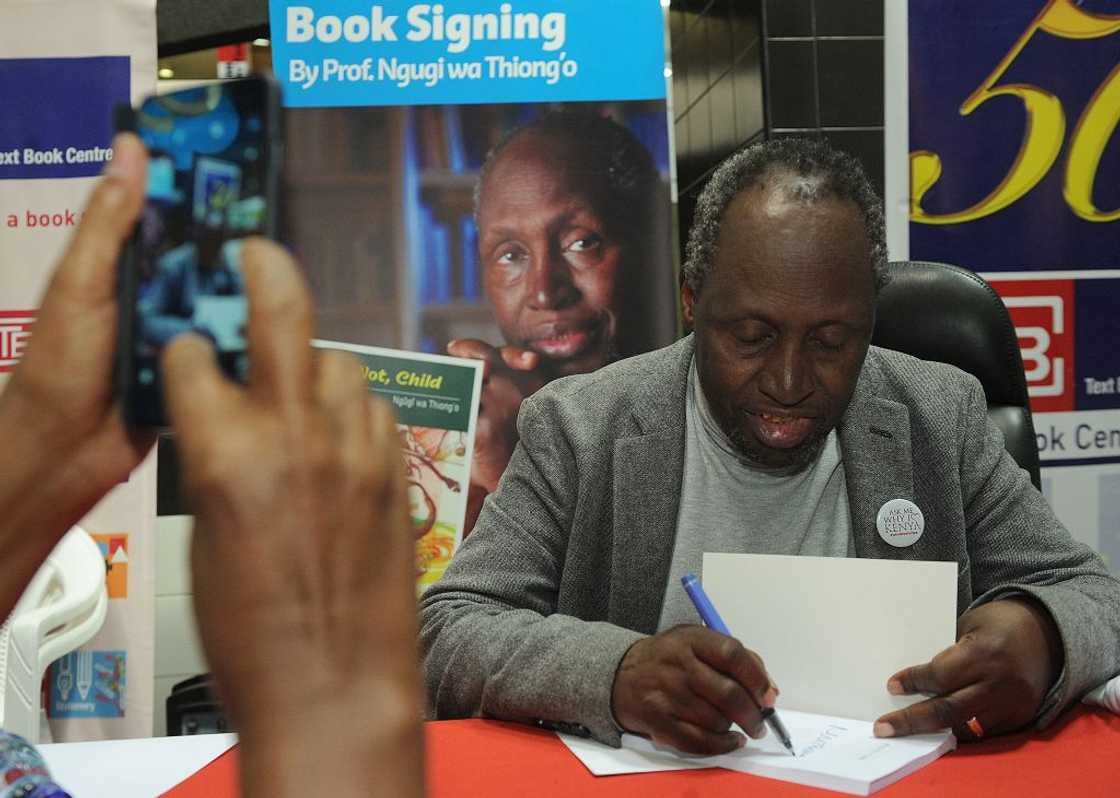NAIROBI, Kenya — Renowned Kenyan author, scholar, and activist Ngũgĩ wa Thiong’o is dead, his family announced on Wednesday evening, May 28, 2025. They stated that he “lived a full life, fought a good fight.”
Widely considered Kenya’s most influential writer and a leading literary voice on the African continent, Ngũgĩ was born in Limuru, Kenya, in 1938. Throughout his prolific career, he penned novels, plays, essays, and memoirs that critically examined colonialism, post-independence struggles, culture, and language within African societies.
His body of work, spanning decades and translated into numerous languages, has established him as a towering figure in global literature.
He is particularly celebrated for his incisive critique of colonial and postcolonial systems and his pivotal decision to write in his native Gikuyu language as a powerful political and cultural statement.
Early works and rise to fame
Ngũgĩ first gained prominence in the 1960s with his debut novel, Weep Not, Child (1964), a groundbreaking work as the first major novel in English by an East African author.
Set against the backdrop of the Mau Mau uprising in colonial Kenya, the novel narrates the story of a young boy, Njoroge, whose aspirations for education and a prosperous future are shattered by the violence and upheaval of British colonial rule.
This work introduced readers to the core themes that would define Ngũgĩ’s literary journey: the conflict between tradition and modernity, the profound impact of colonialism, and the crucial role of education.
His second novel, The River Between (1965), further delved into the internal tensions within African communities grappling with the introduction of Western religion and the persistence of indigenous beliefs.
It centered on two villages divided by their responses to colonial Christianity and the challenge of preserving cultural identity amidst significant change.
The novel’s protagonist, Waiyaki, attempts to bridge these divides but ultimately faces betrayal and failure, reflecting Ngũgĩ’s early engagement with the complexities of leadership and resistance.
Petals of Blood (1977), recognized as one of his most impactful novels, exposed the corruption, betrayal, and growing inequality in post-independence Kenya.
The narrative follows four characters arrested after a mysterious fire in a Kenyan town, and through their interwoven stories, Ngũgĩ critiques the betrayal of the ideals of independence by a burgeoning elite class.
The novel was subsequently banned by the Kenyan government shortly after its publication.
Political repression and writing in prison
Ngũgĩ’s political activism reached a critical point in 1977 when he co-authored the play Ngaahika Ndeenda (I Will Marry When I Want), written in Gikuyu and performed by community members in Kamirithu.
The play’s critical portrayal of societal injustices in Kenya and its immense popularity drew the unfavorable attention of the authorities. Consequently, Ngũgĩ was arrested and detained without trial for a year.
During his imprisonment, he underwent a significant literary and political transformation, choosing to abandon writing in English and exclusively adopt Gikuyu.
His prison memoir, Detained: A Writer’s Prison Diary (1981), meticulously chronicles his incarceration and underscores the profound significance of language as a tool for resistance.
Later works and legacy
Following his release and facing continued harassment from the government, Ngũgĩ went into exile in the 1980s, residing in the United States. While abroad, he maintained a prolific writing and publishing schedule.
His novel Matigari (1986), initially written in Gikuyu, tells the allegorical tale of a freedom fighter who returns to his homeland after independence only to find that oppression persists. This book was also banned in Kenya, contributing to Ngũgĩ’s extended period of exile.

Other notable works include his memoir Dreams in a Time of War (2010), which recounts his childhood during the era of colonial rule, and In the House of the Interpreter (2012), which details his experiences in a colonial boarding school.
In 2020, he was shortlisted for the International Booker Prize for his novel The Perfect Nine, a mythological reimagining of the origin of the Gikuyu people, originally written in Gikuyu and translated into English by Ngũgĩ himself.
Language and cultural identity
Perhaps Ngũgĩ’s most enduring legacy lies in his passionate advocacy for African languages. In his influential critical essays—most notably Decolonising the Mind (1986)—he posits that language is a crucial arena of struggle in postcolonial societies.
He firmly believed that African writers must embrace their native tongues to authentically represent the realities of their people and resist cultural imperialism.
His significant contributions to literature garnered him global recognition, numerous prestigious awards, and honorary degrees. Yet, for countless readers in Kenya and across Africa, his work remains indispensable not only for its literary brilliance but also for its unwavering courage, profound truth, and deep affection for the continent.

